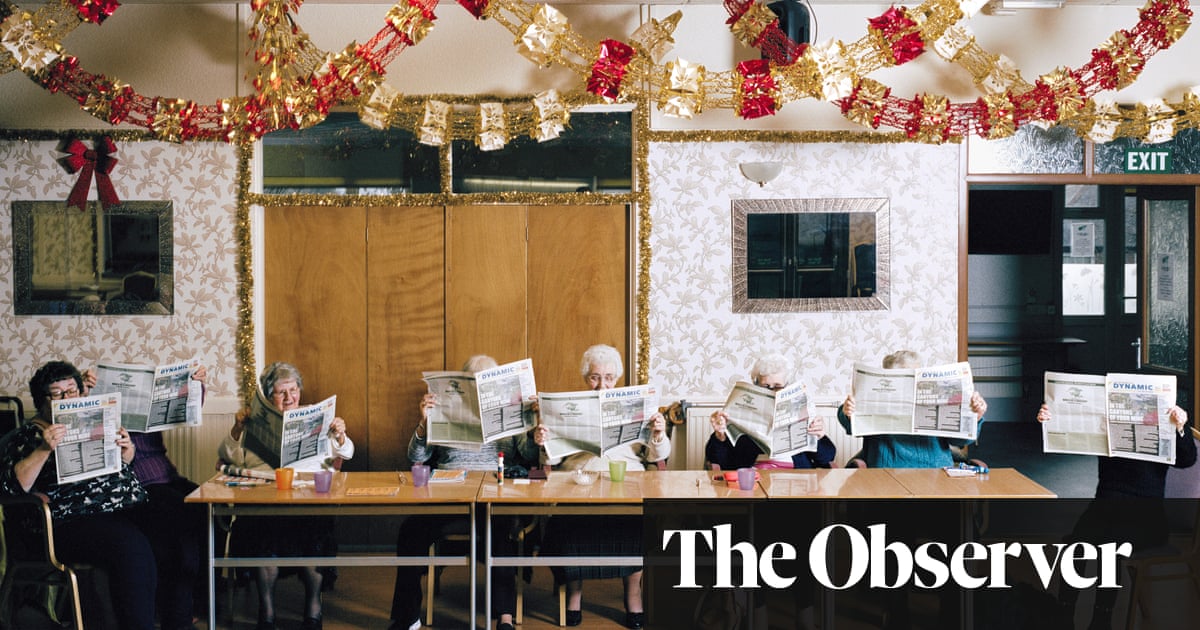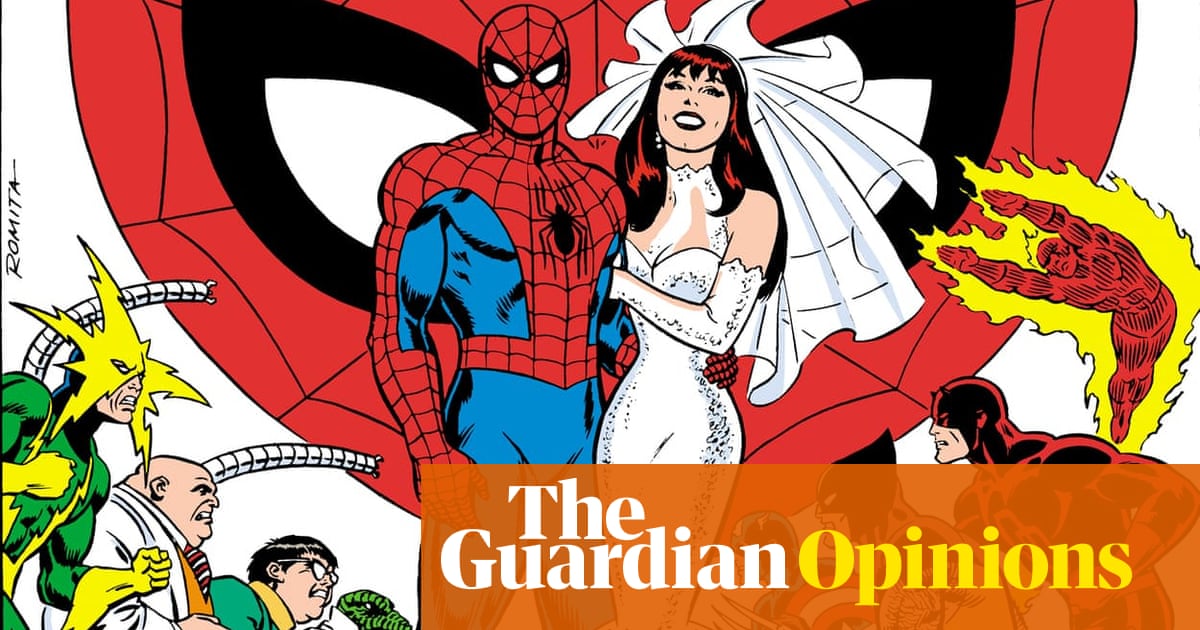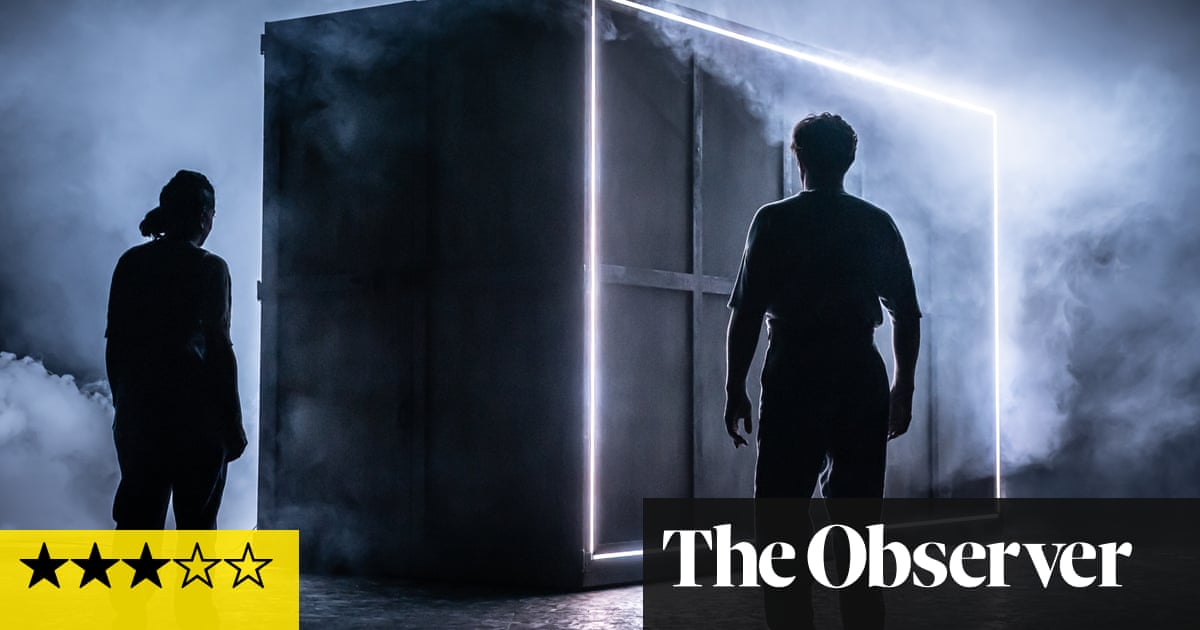
he dinner dances hosted by Robert and Betty Maxwell at their Italianate mansion in Oxford, Headington Hill Hall, were reckoned, even by hardened partygoers, to be in a class of their own. Every year on Maxwell’s birthday, the great and good would descend in their droves to enjoy his hospitality. Labour party grandees would rub shoulders with captains of industry, leading scientists with newspapers editors.
But the party to celebrate Maxwell’s 65th birthday in June 1988 was confidently predicted to outdo them all in terms of both opulence and pomp. The US president, Ronald Reagan, sent a telegram of congratulations: “Nancy and I are delighted to join in the chorus of appreciation.” So did the prime minister, Margaret Thatcher, who extolled Maxwell’s “sense of direction and decision” – very similar, she noted, to her own. As far as the then Labour leader, Neil Kinnock was concerned, “If Bob Maxwell didn’t exist, no one could invent him.” Kinnock went on to pay tribute to Maxwell’s “basic convictions of liberty and fair play”.
Garlanded with medals, beaming his wolfish smile and with Betty by his side, Maxwell made his entrance to a fanfare of herald trumpeters. After dinner was over, a huge flaming sign spelled out the words “Happy Birthday Bob” across the night sky as guests bopped away on the specially-laid dance floor.
Among them was the Labour party’s then director of communications, Peter Mandelson. “It was very strange because you’d simultaneously want to be at Maxwell’s parties and at the same time shrink away from him,” he remembers. “Because he was such a bully and so unpredictable. To be honest, I was frightened of his company. He had that ability to make you feel completely small and inadequate, and that just scrambled my head.”
Mandelson wasn’t the only guest nursing ambivalent feelings towards his host. Watching from the sidelines was the former British ambassador to Washington Peter Jay, who spent three years as Maxwell’s “chief of staff”. “It was as if people came because they wanted to see Maxwell; it was a spectacle. And although they sucked up to him and enjoyed his hospitality, you could see them raising their eyebrows at the same time.”
In 1988, Maxwell appeared to be the king of all he surveyed. From Headington Hill Hall, he gazed out over a publishing empire that stretched all the way from Oxford to Osaka. As he had recently taken to boasting: “The banks owe us money; we have so much on deposit.” Four years earlier, he had bought Mirror Group Newspapers for £113m – thereby securing what he had always longed for: a newspaper of his own. A mouthpiece through which he could proclaim his opinions to the world.
But there was rather more to it than that. Owning the Mirror meant that Maxwell and Rupert Murdoch were now the two biggest power brokers in British politics. Just as the Conservative party depended on the support of Murdoch’s Sun, so the Labour party was equally reliant on the Mirror – something that made life extremely tricky for Kinnock.
However much he may have extolled Maxwell in public, in private Kinnock was a lot less effusive. “I was in this constant dilemma of not wanting to defer to him, and not wanting to lose his support either,” he recalls. “How do you deal with this extremely capricious man with an overwhelming sense of his own power … While I knew I couldn’t afford to lose his support, I knew too that he could change in an instant; it was like walking on eggshells.”
As Kinnock would discover, Maxwell’s ways were not his own – and never would be. Shortly after Maxwell bought the Mirror, Kinnock and his wife Glenys invited the Maxwells to an informal supper in their local Italian trattoria. To the Kinnocks’ astonishment, Maxwell and Betty each turned up in their own Rolls-Royce. By coincidence, the TV playwright, Dennis Potter happened to be in the same restaurant. “I remember after the Maxwells had gone, Dennis came over and said: ‘I hope you ate your meal with a very long spoon.’”
Kinnock wasn’t the only one with an oppressive shadow hanging over him. For almost 30 years Maxwell and Murdoch had been locked in a titanic struggle, each hellbent on becoming the world’s largest media baron. As the late Sir Harry Evans put it: “Maxwell thought he had entered the ring with another boxer, but he hadn’t. In fact, he’d entered the ring with a jiu-jitsu artist who also happened to be carrying a stiletto.”
The two men had first met in 1963 when Maxwell tried to interest Murdoch in a company marketing encyclopedias. By his own admission Murdoch was “a bit spellbound” by Maxwell and agreed to stump up A$1m to become his partner. But before the deal could be signed, Murdoch learned that the encyclopedias were not all they seemed to be. In fact they were bankrupt stock that the publishers had offloaded – free – on to Maxwell.
“He was trying to con me,” Murdoch remembers. “I must say I thought it was quite funny, but the man was obviously a crook.” As far as he was concerned, Murdoch never expected to see Maxwell again. Here, though, he turned out to be quite wrong. This wasn’t the end of their acquaintance; it was only the beginning.
On four occasions during the 1960s and 70s, Maxwell tried to buy a Fleet Street newspaper. Each time Murdoch got the better of him. For Maxwell, this turned into a kind of running sore. The more Murdoch thwarted him, the more determined he was to get his revenge. For his part, Murdoch insists he never regarded Maxwell as anything more than an irritant, albeit one he could never quite manage to shake off. Constantly, the two men would be mentioned in the same breath; to make matters worse, they even shared the same initials.
“You’d switch on the TV in some hotel bedroom and there would be Maxwell in his dark suit and bow-tie telling you about his global communications company. It was all bullshit. I never spoke about him, but he couldn’t stop talking about me. Whatever we did, he wanted to do it too … He was a total buffoon really.”
But if there was no shortage of irritation on Murdoch’s part, there was something far more consuming on Maxwell’s. In time, his attitude towards his arch-rival would topple from jealousy into full-blown paranoia. After he had bought the Mirror, Maxwell summoned members of the Labour frontbench to lunch at Maxwell House, as he had named his headquarters on Holborn Circus.
However much they may have detested him, they had no choice but to go. Roy Hattersley, then deputy leader of the party, remembers being shown into the dining room with his political adviser, Dave Hill. Maxwell was sitting at the head “of a huge dining table drinking from a silver goblet. He did not get up”.
Shortly after the meal started, Maxwell told the butler to leave the room and close the door. Once the butler had left, he explained what he had done: “I feared that you were going to discuss intelligence reports, and that man” – he pointed at the door – “is a spy planted by Rupert Murdoch.” When Hill, not unreasonably, asked why he continued to employ him if that was the case, Maxwell retorted: “That just shows how little you know about business. I don’t waste my time worrying about who is appointed as my butler.”
In his increasingly desperate quest to prove that he held his own in the same arena as Murdoch, Maxwell set in train a course of events that would lead to his physical and mental disintegration, his downfall and ultimately his death. When he bought the American publishers Macmillan, in 1988, Maxwell ended up paying roughly a billion dollars more than anyone – including the company’s directors – thought it was worth.
His friend Gerald Ronson, chief executive of the property developers Heron International, tried in vain to talk him out of it: “Maxwell had to be in America and he had to be bigger than Murdoch. He was like a child at Hamleys; he had to have his toy right away.”
When he was in the UK, Maxwell continued to throw his – ever-increasing – weight around with characteristic abandon. If Kinnock and Hattersley knew they had to try to keep him onside, Glenys Kinnock saw no reason to follow their example. Discovering that she had been placed next to Maxwell at the banquet he always threw at the Labour party conference, she sneaked in early and changed the name cards around.
But the Maxwell who showed up at the Labour conference in October 1991 was a changed man from the Maxwell of old – sickly, despondent and mired in debt. At a lunch at the Metropole Hotel for senior Mirror journalists, the paper’s recently appointed political editor, Alastair Campbell, was surprised to be invited on to the balcony by his new boss.
“That struck me as odd because I must have been the most junior person there … Maxwell started to tell me how everyone was out to get him. How I had to understand that if these people destroyed him, they would also destroy the Labour party. He was really ranting. He kept saying that it was vitally important that Neil Kinnock understood that. I remember there was a very narrow balustrade on the balcony and I had this feeling that Maxwell sort-of wanted to tip over. It even half crossed my mind that I was going to have to reach out and grab him.”
The same evening there was a large party at the hotel hosted by Maxwell. Campbell invited a friend of his to come along – a man who happened to have bipolar disorder. “My friend was going through a particularly manic phase at the time,” Campbell recalls. “He ended up having a chat with Maxwell and I remember afterwards him saying to me: ‘My God, that guy is off his fucking head.’”
A month later, Robert Maxwell was dead, having disappeared off the back of his yacht, the Lady Ghislaine – named after his favourite child – in circumstances that have never been fully explained. Again the tributes could hardly have been more fulsome. “He was and will remain unique,” said Mrs Thatcher. President Gorbachev was “deeply grieved”, while President George Bush Snr extolled Maxwell’s “unwavering fight against bigotry and oppression”.
But within three weeks the tide had turned more dramatically than anyone could have predicted. At the beginning of December 1991, the Guardian reported that at least “£350m appeared to be missing from the Mirror pension funds”. Just four days later, the Maxwell empire collapsed.
Thirty years on, Maxwell, in many people’s eyes, remains the embodiment of corporate villainy. Likewise, speculation over his death shows no sign of abating. But one man at least has no doubt what happened. “I remember I got a call one morning when I was in Los Angeles saying that he had disappeared off his boat,” Rupert Murdoch recalls. “I said straightaway: ‘Ah, he jumped.’ He knew the banks were closing in, he knew what he’d done and he jumped. I can’t give any other explanation.”












